
Gaining Ground in C-suite Positions
Of all the C-suite positions—CEO, CFO, COO—in the cannabis industry, 27 percent are occupied by women, according to Marijuana Business Daily. While this is more than the 23 percent of executive positions held by women in other industries, it’s less than the number of women in upper levels of cannabis four years ago, which was 36 percent. Does this industry offer quick advancement and the opportunity to make big bucks? Or, has the legal and regulatory environment been a buzz kill? Here’s what a number of female entrepreneurs in the cannabis industry have to say about their prospects in 2020 and beyond.
The Galley
On the site of a former fish manufacturing facility on Sebastopol Road in Santa Rosa, Annie Holman co-founded and built an 8,300 square foot co-manufacturing space exclusively dedicated to cannabis. Holman, the granddaughter of a Maine lobster fisherman and designer of the company’s mermaid logo, says The Galley was named for both the original operations on the site and “because we all come from the ocean in some way.”
After a two-year licensing process (Type N for manufacturing from the California Department of Public Health, and Type 11 for distribution from the Bureau of Cannabis Control), The Galley opened for business with 25 of its approximately 155 current clients. “We wanted to begin slowly, learning how to use all the equipment and maintaining strict control,” says Holman. A staff of 14 helped open shop with products including a spectrum of edibles (gummies, chocolate, hard candy, fudge, caramels, mints, hot and savory sauces, cookies and other baked goods) as well as tinctures and pain-relief topicals. The Galley will eventually offer its own line of ingestible products called Big Fish Edibles.
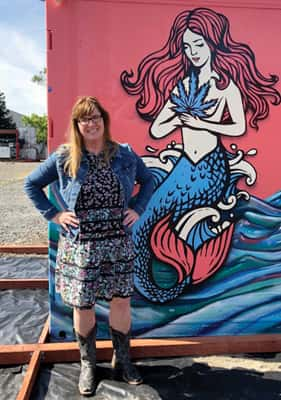
Holman explains her co-manufacturing business model includes the following for clients: research and development services, recipe development and standard operating procedure writing, package graphic design, packaging sourcing, label compliance checks, cannabis and non-cannabis ingredients sourcing, distribution/fulfillment and storage. “Our aim is to be a one-stop shop,” she says. The Galley recently added another service to its repertoire, according to Holman. Staring in April, the company pivoted from cannabis to produce hand sanitizer for the North Bay community and the state of California.
But long term, the focus is still on cannabis, and the Galley pays special attention to its many clients that Holman calls legacy brands—generations of growers and purveyors working in cannabis since before adult use and medial marijuana were legal. “Those people paved my way. I would not be here today if not for the old guard taking risks,” Holman says. “They are small businesses who can’t afford a brick-and-mortar location as we have here. Helping the legacy brands get back on the shelves is important to us.”
Holman combined her past marketing and networking experience as co-owner of Derby Bakery, a gourmet edible cannabis company. According to The Galley, cannabis investors are currently being more cautious. “A couple of years ago, investors were pouring money into the cannabis industry. Then it started to dry up because some people lost their shirts,” says Holman, who asserts that money is starting to flow again, albeit slowly. “The smaller brands don’t need $5 million or $10 million to scale up. They need $500,000. That’s doable for a lot of investment groups.”
Just 2.2 percent of all venture capital in the U.S. goes to companies founded solely by women, according to a 2019 report from Fortune.com. In addition, companies with all-male founders receive funding after their first-round of financing 35 percent of the time, while that happens less than twice in 100 such opportunities for women. It’s not surprising, then, that only 2 percent of women-owned businesses make it to $1 million in revenue. Ironically, a report published by the investment firm First Round states that female-founded companies performed 63 percent better than those with male founders.
Holman believes that such high performance is a result of the traits women bring to the table that add to a unified culture, such as high emotional intelligence, empathy, intuition and strong interpersonal communication.
Herba Buena
Alicia Rose has been a cannabis columnist for Sonoma and Napa county publications and a speaker at gatherings such as Wine & Weed, the Emerald Cup, New Living Symposium and Conscious Cannabis Summit. Her topics run the gamut—from biodynamic farming to cannabis and sexuality. She just celebrated the fifth anniversary of founding Herba Buena, a company that provides an award-winning portfolio of products and is dedicated to promoting the highest expression of cannabis; Herba Buena believes those benefits can transform global dialogue regarding how to heal and nourish humanity and the planet.
Heady rhetoric, indeed, but Rose has had a practical effect on current cannabis culture as a brand builder. She has worked on writing the cannabis ordinances for three counties and four cities in California. Her credentials include a master’s degree in environmental science and international affairs, with 17 years working with Napa Valley’s most renowned wineries and 100-point winemakers. She continues to operate Earth and Ethos, a holistic marketing and business practice.
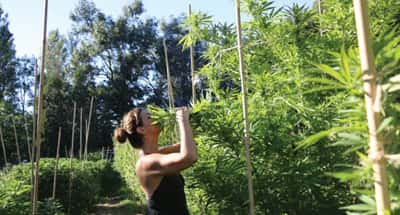
“My motivation for founding Herba Buena was to first provide clean cannabis to my friends and is now focused on helping raise consciousness to cultivate well-being for people and planet,” she says, noting that Herba Buena’s gardens are licensed and certified by the oldest and most respected agricultural certification in the world, Demeter Biodynamic, to ensure soil health, biodiversity and harmony within the ecosystem.
That certification ensures that Herba Buena products come from plants grown in soil and under the sun, developing their full potential throughout the growing season without external fertility (“no bat guano from Argentina”), which forces the plant out of its natural balance. “The cannabis flower begins in the soil,” says Rose, recalling the winemaker concept of terroir. “Our quality standards reject industrialized or indoor cultivation, hydrocarbon or volatile extraction methods, distillates, isolates, artificial flavors or corn syrup.”
To fulfill the educational portion of its mission, Herba Buena has sponsored cannabis events, such as its Social Clubs, since 2015. “Luxury is defined by health, and quality is defined by purity,” says Rose. She wants both the canna-curious and the cannasseur to experience what she calls “California’s most extraordinary plant medicine” in a comfortable, fun and guided setting, where she and her associates discuss the science behind the products and how to incorporate quality cannabis into one’s life for therapeutic and pleasurable pursuits. As the cannabis culture evolved, Rose introduced Herba Buena’s guided tastings and custom curation for private events, as well as what she calls “Elevated Experiences for the Higher Mind” where she works with master sommeliers, winemakers and chefs to offer a unique set of epicurean enjoyments.
The high road, however, has not been easy for Rose. “As a woman who has been in two other male-dominated industries—dot.com and wine—I never said that I was at a disadvantage. Until now,” she says. “I have experienced a lot of sexism. I have male counterparts who have raised millions and millions of dollars, and I received nothing. The inappropriate behavior I experienced was overt. It felt like an extreme version of gender power inequality.”
While Rose does have some male investors, she says she saw business plans by men similar to hers get funded, when hers did not. Ever optimistic though, she says that having less debt at the current moment is a benefit. “With the instability of the supply chain and the untenable 80 percent excise tax, it is very difficult for anyone to make money.”
Taxes and regulations may be the greatest challenge for the cannabis industry, but consumers, especially female consumers, are driving the market. And it is their desires Rose is trying to satisfy. What Herba Buena female clients seek help with is, in this order: anxiety, sleep, pain, and sexual enhancement.
In looking at trends from September to December 2019 direct-to-consumer sales, Rose says she found a difference between what new customers want (and most of these new customers are women) and what the dispensaries are offering. Approximately 80 percent of Herba Buena’s products are available in three categories—flowers (20 percent), pre-rolls (20 percent) and tinctures, and topicals and sublinguals (41 percent). Total cannabis market trends compared in these same categories include flowers (46 percent), pre-rolls (9 percent) and tinctures, topicals, and sublinguals (4 percent).
“Maybe it’s just that the guys are looking to get high,” Rose says, “while women are looking to feel better, work better and have a more joyful and balanced presence to their days. It’s my hope that everyone discovers the benefits of the latter with our help.”
Garden Society
The co-founders of Garden Society, a cannabis benefit corporation focused on women’s wellness, met through the wine industry, by way of co-founder Erin Gore’s husband, Tom. Karli Warner’s career in wine marketing and communications led her to a position at Constellation Brands, and she met Erin, a chemical engineer for a leading German company, thanks to Tom’s position as vineyard director at Constellation.
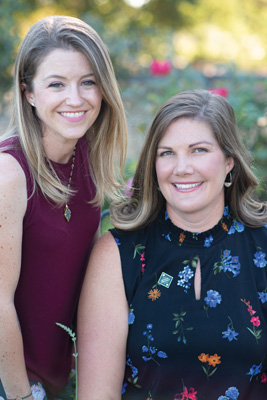
The two women started talking cannabis and daydreaming at a wine event in 2014. Their conversation lit a spark in both Erin and Karli for what was to come. Erin began hosting what she called “holiday high baking” parties with her friends in 2016, helping them escape from the rigors of daily life and have an open conversation about the joy and benefits they found through cannabis. These parties were Erin’s “aha” moment. She went on to leave her corporate job to concentrate on starting a family and explore her idea for a cannabis company specifically for women. Erin and Karli then rekindled that initial spark and began the journey of creating Garden Society together.
“During Erin’s career, she used cannabis to help with jet lag. She also used it to relieve hip pain from being a college athlete,” says Warner. “The idea of hosting holiday high baking parties was her intention to help women dealing with struggles similar to her own—trying to be the best wife and mother and the best career woman. At the time, there were no cannabis brands specifically targeting women who were hungry for information. Women often feel intimidated going into dispensaries, yet still are looking to find a product that not only helps them cope, but also makes life more fun and joyous.”
Garden Society is based on two principles: uncompromising quality, and education. The quality comes from source cannabis that is sun-grown, full-spectrum and strain-specific. The education comes from talking with women face-to-face at their cannabis gatherings, dubbed “Garden Parties.” Here’s how they work. “One of our gardeners invites women to her home,” Warner explains. “We mingle for 30 minutes and gauge the crowd’s knowledge. Most of our events are Cannabis 101. We lead a conversation explaining the endocannabinoid system. It’s important that people understand that the body has a system with which the cannabis plant can interact. The main things women want to know are: how do I dose? What is the best method for me? Eating it, topicals, smoking? We often bring [non-cannabis] chocolates to the party to sample for taste.” Orders are then taken in compliance with California cannabis purchasing laws, adds Warner.
For those interested in exploring cannabis as a career, Warner encourages women to consider joining the cannabis industry. “In fact, we need more women in leadership roles across the board,” she says. “The climate of our country now is so tense. The current white male figures at the top aren’t doing what needs to be done to push the industry forward. It’s more important than ever that we lift up people of color and women. There is an opportunity here and I wouldn’t discourage anyone. One piece of advice I’ve learned over the years: you have to be scrappy as hell.”
Fiddler’s Greens
Shannon Hattan and her husband, Cameron, named their company after a mythological sailors’ paradise, Fiddler’s Green, where, legend has it, the music never stops, the dancers never tire and the cup is always full.
The Hattans started cultivating in 2009 because of Shannon’s back pain. They had a small collective that was growing for SPARC and other medical dispensaries in San Francisco, so when Prop 64 passed, they realized they had to decide whether to go into the adult-use industry.
Fiddler’s Greens was the first permitted farm in Sonoma County and already had established products, so it was early going to market. “We started out growing THC strains for our collective members’ personal use. We believed in the power of the herb, not just as medicine, but as part of a certain quality of life, as opposed to one that revolved around alcohol and cigarettes,” says Hattan. She says they were one of the first cultivators of CBD strains going into retail, which was, in the beginning, a tough sell. “We would walk in and say, ‘Here’s a flower; go smoke it and it won’t get you high.’ That’s comical now because on every gas station or grocery store shelf there is something with CBD in it.”
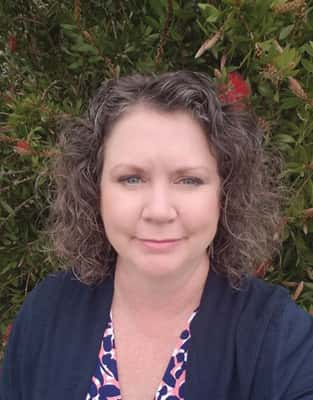
When asked what was the most challenging part of being in the cannabis business today, Hattan replies, “It’s a cliché and a joke in the industry, but we’ve been building the airplane while we’re flying it. We’re trying to comply with regulations that haven’t been written yet.” She feels frustrated because the process of legalization is so burdensome that it sets some up for failure. And the tax dollars are not coming in as expected. Before Prop 64, it was estimated that 3,000 to 5,000 dispensaries were operating in California. Four years later, Hattan says, less than 1,000 permits have been issued. “You have to have a warrior mentality to stay in this business. But I guess if they couldn’t get rid of us with helicopters and machine guns, they’re certainly not going to get rid of us with regulations.”
An important part of Fiddlers Greens’ mission is to educate the public not only on the therapeutic benefits of cannabis, but also on the history of prohibition and the backstory of the cannabis movement. The company collaborates with retail partners to sponsor community events, and Cameron does a variety of speaking engagements—all with the intent to creatively counteract years of “Reefer Madness” propaganda, misinformation and stigma.
The only way consumers can get Fiddler’s Greens tinctures, healing balms, pre-rolls and prepackaged flowers is through dispensaries; a list of 108 locations can be found on the company’s website. The Hattans urge retailers to carry Northern California legacy brands and keep money in the state and to let California’s unique set of regulations keep its cannabis users safe.
Moonflower
The two women who co-founded Moonflower Delivery hover on either side of age 30 and probably have enough energy between them to power a city block. Alexa Wall introduces the company’s cannabis delivery service by quoting its tagline: For Health, For Wellness, For the Soul. Her partner, Danielle Spann, explains that because the moonflower (Ipomoea alba) needs darkness to grow and blossom, “We saw cannabis as being a light in the darkness that helps bring people out of whatever difficulties they are going through,” she says. “We feel that cannabis is a representation of something that can help our community get through dark and difficult times. This is what cannabis means to us.”
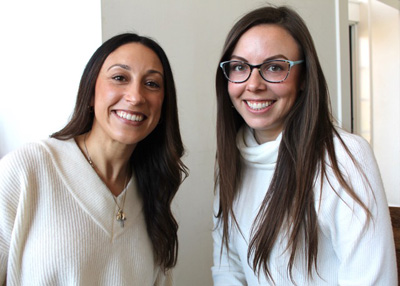
Wall and Spann met in 2017 when they organized an Emerald Cup after-party. They were both already involved in the industry—Wall and her husband, Curtis, had been growing cannabis since 2014 with their cultivation company, Luma California; Spann, with her brother, Nico, had established their company, CannAlign, an app that allows patients and consumers to research and locate legally-licensed cannabis brands and retailers. The pair hit it off and decided to apply for a license in Marin because that jurisdiction had opened up, and San Rafael, at that time, seemed amenable to a cannabis delivery service. It took about a year to put the pieces together for Moonflower, which has been in business since February 2019.
“State law allows us to deliver into any jurisdiction; we just can’t be licensed in some places,” Wall explains. “We pay sales tax into each of the cities where the deliveries occur—Dani deals with all the taxes and cash. She does the finance and I do the compliance, which is why we are such a good team.” Currently, cannabis product consumers pay California state and excise tax of 27 percent at the point of sale.
Wall and Spann’s business is simple: “We take orders via phone or online, pack them, and our drivers fulfill the orders,” says Spann. “Our business model is simple but we’re creating an experience for customers from start to finish. That experience is what we believe differentiates us from our competitors.” They cannot deliver to public parks, government buildings or schools, but they can deliver to a movie theater or someone’s workplace. It doesn’t have to be to the customer’s home address.
“People love it,” says Wall. “It’s convenient and discreet. Some individuals may not want to walk into a dispensary, for whatever reason. And we don’t have the kind of pressure one might feel in a dispensary, with a long line waiting and the budtenders wanting to move everyone through. Danielle and I spend all the time we need to on the phone answering questions—maybe 30 minutes with a new customer. We also partner with a company where a potential buyer can Skype and video chat with a licensed California doctor about cannabis.”
Spann says they’re hiring multiple drivers and currently have a fleet of four delivery vehicles. They serve 11 cities in Marin County daily and four cities in Sonoma County on Monday, Wednesday and Saturday. Although Moonflower had a billboard in Petaluma for a time, their success has mostly been from word of mouth; they average 50 to 75 deliveries and on a good day the company fulfills 75 to 100 orders.
Moonflower carries products from different areas in California, and at different price points, Spann says. “We’re able to stock small, women-owned and crafted items, artisanal items, and also carry some of the biggest brands. Our strategy for building our menu is to give customers a taste of California, offering the best products all over the state, not just within our area.”
The passionate young women of Moonflower care about the people they serve and believe strongly in what they are doing. “Otherwise we wouldn’t have put so much blood and sweat into getting it up and going,” says Wall. “Often the guys come back from a delivery and tell us how much a product has meant to a customer. A 97-year-old war vet has neuropathy in his feet and couldn’t find anything that would work for his pain. We introduced him to a topical salve; now he applies it to his aching feet and gets relief. This where our joy comes from.”
Like many cannabis entrepreneurs, the passionate young people of Moonflower care about and respect the people they serve. They work tirelessly to raise industry safety standards and the level of public education about cannabis—for health and for quality of life. “It feels like the sky’s the limit for us,” says Wall. “We can take it as far as we want.”
By Jennie Orvino


